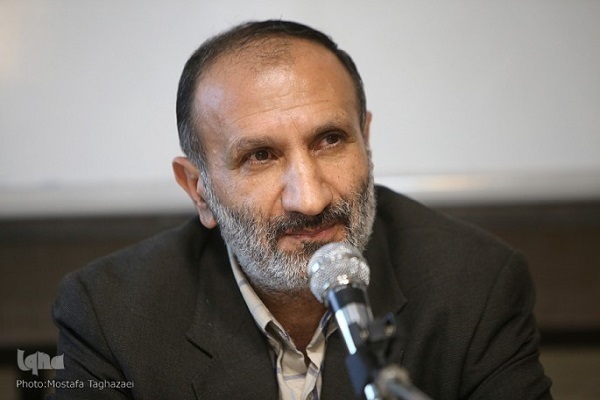Imam Ali's Timeless Wisdom: Three Principles for A Fulfilling Life

Mostafa Delshad Tehrani, an Iranian author and a Nahj al-Balagha researcher, sat for an interview with IQNA on the occassion of Rajab 13, the birth anniversary of Imam Ali (AS). What follows are excerpts from the conversation:
Nahj al-Balagha serves as a fundamental resource for delving into the Seerah of Imam Ali (AS), providing insights into both the principles governing his life and their practical application across various aspects.
The term "principles" here refers to universal rules guiding practical aspects of life.
Imam Ali (AS) epitomizes the teachings of the Holy Quran and the Prophetic school, offering exemplary guidance in diverse matters. His words and actions span a wide array of subjects, making him a paragon and a standard-bearer of excellence.
Extracting from Nahj al-Balagha, we can discern three foundational principles that serve as a blueprint for a fulfilling life. These principles offer valuable guidance for harmonizing human life and faith across all spheres.
1st Principle: Guarding Boundaries
The first key principle is about guarding boundaries with a focus on Taqwa (piety). Here we talk about safeguarding all human and religious boundaries, exercising prudence in various aspects of life guided by reason and Sharia.
Adhering to this principle entails practicing self-restraint, respecting boundaries, and avoiding any violations. It's about knowing and respecting personal limits, staying within the bounds of laws and divine guidelines, and being mindful of both personal and others' privacy.
Read More:
Living within these borders involves respecting the sanctity of God's commandments, refraining from trespassing into areas reserved for God, and understanding that one's true dignity lies in serving God and others. No one possesses another, and true dignity is found in dedicated service to God and humanity.
As previously mentioned, it is crucial for individuals to preserve their personal boundaries and refrain from encroaching upon divine sanctuaries or harboring false notions about God. When someone succumbs to the illusion of self-conceit, they risk self-destruction and autocratic behavior. In the order to Malik al-Ashtar, Imam Ali (AS) notes:
Beware of comparing yourself to Allah in His greatness or likening yourself to Him in His power, for Allah humiliates every claimant of power and disgraces everyone who is haughty.
There are clear limits for humanity, and one important boundary is not obeying anyone when it involves disobedience to God or injustice. Hikmat 165 of Nahj al-Balagha notes: "One should not follow the command of any creature that disobeys the Creator."
Elsewhere in the order to Malik al-Ashtar, we read:
Do not say: "I have been given authority, I should be obeyed when I order," because it engenders confusion in the heart, weakens the religion and takes one near ruin.

An autocratic and arrogant individual not only oversteps the boundaries of their own existence and disregards personal privacy but also violates the privacy and boundaries of others. Such a person deems themselves superior and feels entitled to behave without restraint.
Safeguarding boundaries and having Taqwa are paramount human qualities, holding a significant place in one's life as Imam Ali (AS) wisely stated in Hikamat 410: “Fear of Allah is the chief trait of human character.”
2nd Principle: Adhering to quality of means for achieving a goal
The second principle underscores the importance of adhering to the quality of means in achieving one's goals. As individuals pursue their life objectives, they make choices, employ methods, and utilize resources.
There exists a profound harmony between these goals and the methods, resources, and tools chosen. Success in reaching the right goals is impossible through deviant paths or improper tools.
Read More:
You cannot sow seeds of ugliness and wrongdoing and expect to harvest beauty and righteousness. Oppression cannot lead to just outcomes, and falsehood and hypocrisy cannot touch truth and purity. The constant challenge for people is deciding which paths and tools to choose in order to achieve their goals. Often, there are suggestions for ways and tools that promise quick and easy results but go against righteousness and justice, tainted with sin and betrayal.
This is where the principle of adherence to the quality of means becomes crucial. It prevents the use of wrong means to advance affairs and attain goals, recognizing such practices as signs of destruction and fundamental deviation.
In Sermon 72 of Nahj al-Balagha, Imam Ali (AS) describes Prophet Muhammad (PBUH) as “proclaimer of truth with truth”. Ali (AS) learned from the Prophet's school that truth can only be upheld through truthful means, and any success achieved through unrighteousness is ultimately void of true success; Victory obtained through sin and oppression is synonymous with defeat and destruction.
In Hikmat 327, Imam Ali (AS) makes a thought-provoking statement: “He who wins through sin has not won, and he who wins with evil and oppression has actually failed.”
Read More:
Imam Ali (AS) exemplified strict adherence to the quality of employing means and never resorted to improper methods to further his policies. He demonstrated that it is possible to engage in politics without compromising on principles, steering clear of sin and maintaining a commitment to the right path.
After assuming leadership and instituting economic reforms while curbing financial abuses, strong opposition arose from those who had unfairly benefited financially under the previous governments. Some of the Imam's allies and companions approached him, urging a change in his approach. In response, as mentioned in Sermon 126 of Nahj al-Balagha, Imam Ali (AS) said:
Do you command me that I should seek support by oppressing those over whom I have been placed? By Allah, I won't do so as long as the world goes on, and as long as one star leads another in the sky.
3rd Principle: Moderation
Now, let's explore the third principle: moderation. Every aspect of life has a middle ground, steering clear of extremes on either side. Embracing moderation in all matters, recognizing and maintaining balance, is a key to a healthy life across different domains.
Imam Ali (AS) exemplified moderation in all aspects, striving to uphold this principle in various areas. Excesses, both in individuals and societies, serve as the root cause of various damages and destruction, as highlighted in Hikmat 108 of Nahj al-Balagha.
Quoting Obaid Ansari in Genealogies of the Nobles, Ahmad Ibn Yahya al-Baladhuri recounted a moment after Uthman's murder: Ali (AS) asked about the situation outside, and upon learning of the event, he remarked, “Surely we are Allah's and to Him we shall surely return”. He then advised: “Love your friend with moderation, as one day he might become your enemy. Hate your enemy with moderation, for one day he might become your friend.”
Read More:
Imam Ali (AS) emphasizes the importance of avoiding extremes in social and political matters, as exceeding the bounds of moderation can lead to costly and weighty consequences. Positive outcomes are unlikely when emotions, functions, and relationships are carried out with excesses. It's crucial to maintain moderation in all aspects, including friendship and enmity. In Hikmat 298 of Nahj al-Balagha, Imam Ali (AS) imparts a valuable teaching:
He who goes too far in quarrelling is a sinner, but if one falls short in it, one is oppressed and it is difficult for a quarreller to fear Allah.
A society entrenched in extremes, despite its efforts, cannot move towards peace and health. The only path towards perfection and order, whether in individual lives, society, politics, government, management, economy, or culture, is to tread the middle path, a principle Imam Ali (AS) consistently advocated.
Living a healthy and balanced life is characterized by moderation and avoiding excesses. In Sermon 222, Ali (AS) emphasizes that those who follow the middle path are praised, given good news of salvation, while those deviating to the right or left are criticized for their destructive ways.
In any circumstance, excesses lead to damage and destruction, yielding nothing but regret. As warned by Imam Ali (AS) in Hikmat 181: “The result of excesses is regret.”
4195232
Translation by Mohammad Ali Haqshenas



